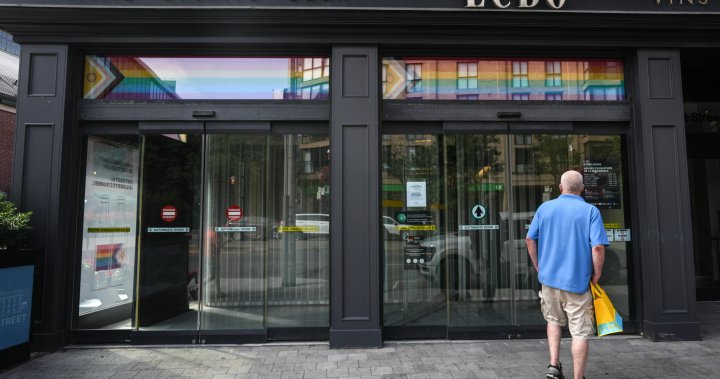The LCBO is set to bring back paper bags to its stores in the coming weeks, just over a year after phasing them out in an effort to reduce its carbon footprint. The decision to stop offering paper bags was made in September 2023 with the goal of removing 135 million bags from circulation annually. However, Ontario Premier Doug Ford expressed concerns about the plan, citing additional expenses for customers who would now be charged for reusable bags instead of receiving free paper bags. Ford ordered the alcohol store to cancel the initiative, stating that many families in Ontario are already struggling financially.
In response to the government’s order, the LCBO began a search for a new bag supplier after cancelling its contract with the previous maker. The Quebec-based company, Rosenbloom Groupe Inc., was chosen as the new supplier through a public Request for Quote process. The $10 million contract is currently being finalized, and the LCBO expects single-use paper bags to be reintroduced in-store in the coming weeks. The retailer had previously estimated that getting rid of paper bags saved the equivalent of 188,000 trees annually and diverted 2,665 tonnes of waste from landfills.
Despite the environmental benefits of eliminating paper bags, the government’s decision to bring them back to LCBO stores was criticized by opposition politicians as a distraction. Premier Ford emphasized that he did not want customers to face additional costs or be put in a situation where they had to openly carry alcohol in public after leaving an LCBO store. He argued that the government and crown corporations like the LCBO should be mindful of the financial burdens imposed on residents and refrain from unnecessary expenses. The debate over the use of paper bags at LCBO stores highlights the ongoing tension between environmental initiatives and economic considerations.
The controversy surrounding the reintroduction of paper bags at LCBO stores raises questions about the balancing act between sustainability goals and economic concerns. While reducing the use of paper bags had positive environmental impacts, the decision was met with pushback from the government due to financial implications for consumers. The LCBO’s commitment to environmental sustainability is evident through its efforts to find a new bag supplier and reintroduce paper bags in a transparent and efficient manner. As the retailer navigates this issue, it underscores the complexity of implementing sustainable practices while considering the socio-economic factors at play.
Overall, the discussion surrounding the return of paper bags to LCBO stores highlights the challenges faced by businesses and governments when attempting to strike a balance between environmental responsibility and economic considerations. The decision to eliminate paper bags was made with the intention of reducing waste and carbon emissions, but concerns about additional costs for consumers and public safety led to its reversal. Moving forward, it will be essential for all stakeholders to engage in thoughtful dialogue and collaboration to develop sustainable solutions that benefit both the environment and the community. The LCBO’s experience serves as a case study in navigating the complexities of sustainability initiatives while addressing the practical realities of business operations and government regulations.


